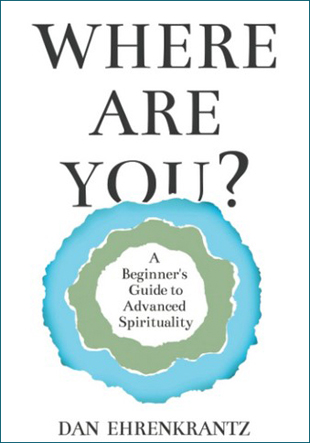This is an intriguing book full of big questions at the heart of spiritual inquiry. Author Dan Ehrenkrantz has written a deeply personal and spiritual book without putting himself at the center. Most of all, he recounts his own challenges and shines a light toward possibilities he has discovered and continues to cultivate.
Ehrenkrantz is a rabbi and discusses this aspect of his background, but he does not use the title as an author. Eschewing this as his essential identity was part of the journey, he explains, toward a new, more mindful, spirituality and understanding of himself and his place. He does not reject Jewish ideas, however: They form the foundation of Ehrenkrantz’s search and discovery. While including parallels from other spiritual traditions, texts including Torah, midrash, Talmud, and Jewish philosophy appear throughout the book.
He centers his work in the same lesson found in rabbinic colleague Rami Shapiro’s recent, Judaism without Tribalism (winner of a S&P “Best Spiritual Books 2022” award). These two books have vastly different foci, but at the heart of each is an understanding of what Jewish tradition calls the tetragrammaton: the four-letter name of God found in the Hebrew scriptures, represented by Enrenkrantz (as is common) with “YHWH.” For both authors, all three grammatical tenses of the verb “to be” converge in God's name. In Shapiro’s book, “Happening happening as all happening” leads to a more open, welcoming, and universal Judaism. In Ehrenkrantz’s book, “IsWasWillBe” guides us to acknowledge what is, let go of the ego of “I,” and connect to the universality of being itself. (See the spiritual practice accompanying this review.)
The journey of reading Where Are You feels like traveling a spiral, encountering spiritual and psychological ideas and questions from a bit of distance, then gradually drawing closer and deeper. We are asked to look closer at our own lives, identities, and egos. We are drawn deeper into our beings, away from constructed identities and self-perceptions. Along the way we gain more trust in our gentle and wise companion.
try a spiritual practice on wonder
_____
Michal Woll is Rabbi of Congregation Shir Hadash in Milwaukee and coauthor of Mixed-Up Love: Relationships, Family, and Religious Identity in the 21st Century.
